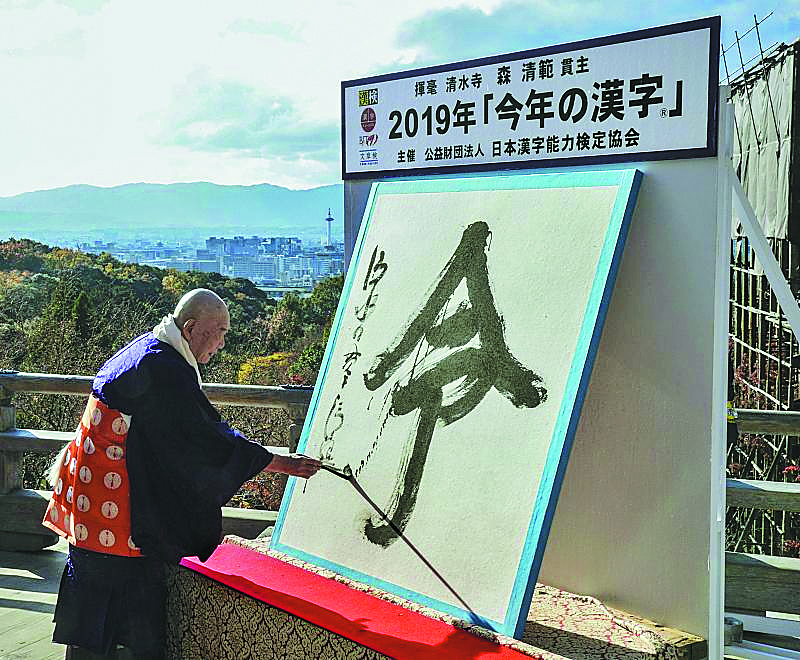Kanji of the year reflects hopes for new emperor
By WANG XU in Tokyo | China Daily | Updated: 2019-12-13 09:14

Japan's kanji of the year for 2019 is "rei," the first of two characters in the name of the new imperial era, Reiwa, that began this year with the enthronement of Emperor Naruhito.
"Reiwa" in Japanese means "beautiful harmony". Chinese characters are known as kanji in Japan. The character "rei" also means "order" in Chinese.
The Japan Kanji Aptitude Testing Foundation, or JKATF, announced on Thursday that "rei' was the public's top choice, reaping 30,427 votes among 216,325 suggestions received through online surveys and postcards. Each year the public is asked to choose the character that best describes the sentiment and events of Japan of the year that has just passed.
On Thursday afternoon, Seihan Mori, head priest of the Kiyomizu Buddhist temple in Kyoto, drew the character "rei" with a large calligraphy brush on a large sheet of traditional washi paper. The event was broadcast live by many media outlets.
"I think rei is a good character that sums up 2019 for Japan because the most important thing this year I think is that Emperor Naruhito ascended to the throne on May 1," Ayumi Fujiwara, a high school student said.
"I think many people picked rei because they have high expectations for the new emperor, who is to bring change and hope to Japan while keeping peace as the Heisei (era) did," Fujiwara added.
Fumio Takahashi, a 40-year-old salaryman, said another reason people may have picked "rei" was due to the many disasters that struck Japan this year.
"During the disasters like Typhoon Hagibis, the government issues all kinds of orders for people to evacuate or seek shelters, which is the other meaning of rei," he said.
Since 1995, The JKATF, a kanjipromotion organization, has conducted the annual survey. The second most popular kanji in this year's survey was "shin", meaning "new" with 14,850 votes. In third place was "wa", meaning "peace" or "harmony" with 10,281 votes. "hen", meaning "strange" or "change", earned 7,749 votes.
























